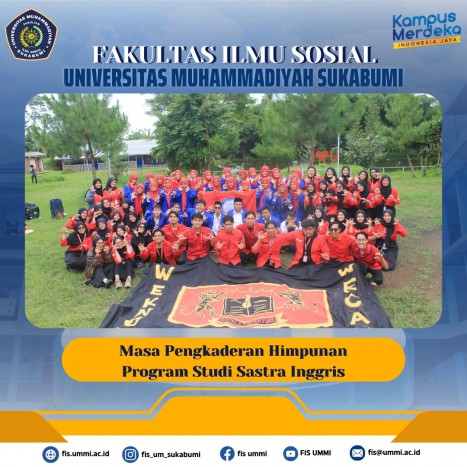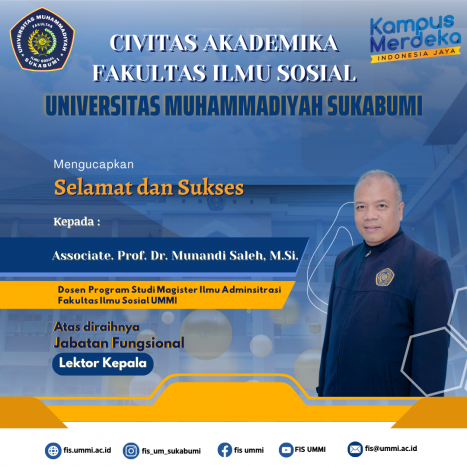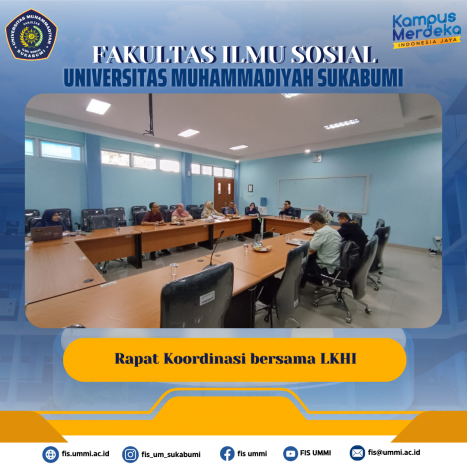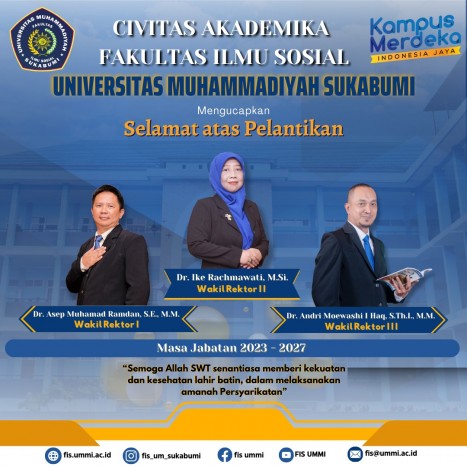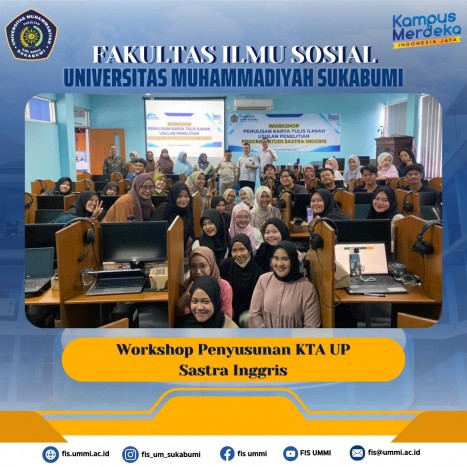Overview
A. History of the Faculty of Administrative Sciences and Humanities
Sukabumi Muhammadiyah University was founded in 2003 with 10 study programs (prodi) without faculty auspices. Three of them are undergraduate study programs in Business Administration (ADBIS), Public Administration (ADPUB) and English Literature (SASING). In 2010, the Faculty of Social and Political Sciences (FISIP) was formed with 2 study programs: ADBIS and ADPUB. Then, it changed to the Faculty of Administrative Sciences and Humanities (FIAH) with the joining of SASING. As a result of the development of FIAH, on May 16, 2014, Diploma III was opened, namely the Public Relations (HUMAS) study program, which was established through Decree Number 96/E/0/2014. Then, on March 1, 2017, a postgraduate program was opened, namely the Master of Administrative Science (MIA) study program with implementation decree number 192/KPT/I/2017. However, with the increase in PR study programs and plans to open new study programs such as Communication Studies, it is considered that the FIAH nomenclature only covers some study programs. So, based on the study of the VMTS drafting team and the results of the FIAH senate meeting, it was proposed to change the nomenclature of FIAH to Faculty of Social Sciences (FIS). So through Chancellor's Decree No 2006/KEP/I.0/A/2023 dated September 26, 2023, AD to coincide with 11 Rabiul Awal 1445 AH FIAH officially changed to FIS.
B. Vision, Mission
The Faculty of Social Sciences is one of the faculties under the auspices of the Muhammadiyah University of Sukabumi. The foundation for the development of the Faculty of Social Sciences refers to the Vision, Mission, Objectives and Targets of the Faculty of Social Sciences as follows:
Vision
To be a faculty of international reputation in the field of social sciences based on Islamic values in 2042
Mission
- To offer outstanding education in the field of social sciences based on Islamic values
- To promote the advancement of knowledge through research and innovation in the field of social sciences
- To build an advanced and civilised society through community services based on the advancement of knowledge in the field of social sciences
- To promote Islamic and Muhammadiyah studies, and to develop the organization of Muhammadiyah

